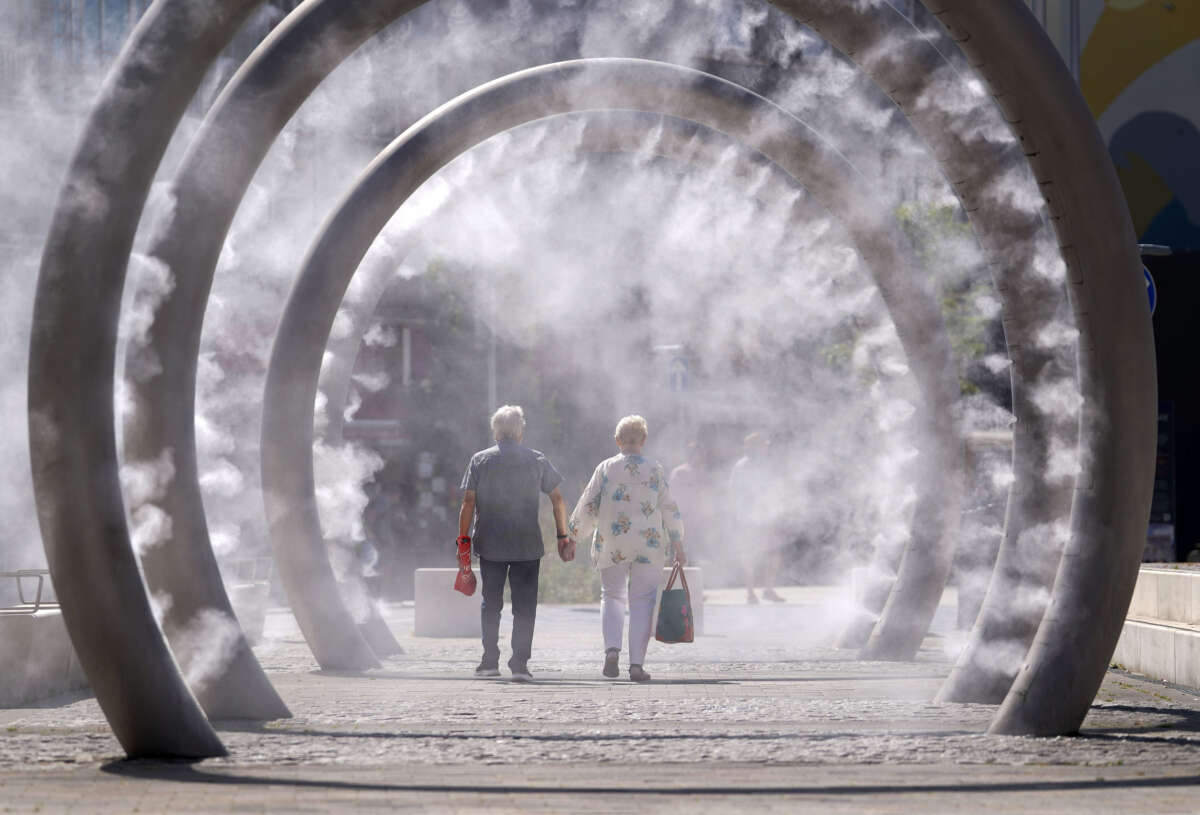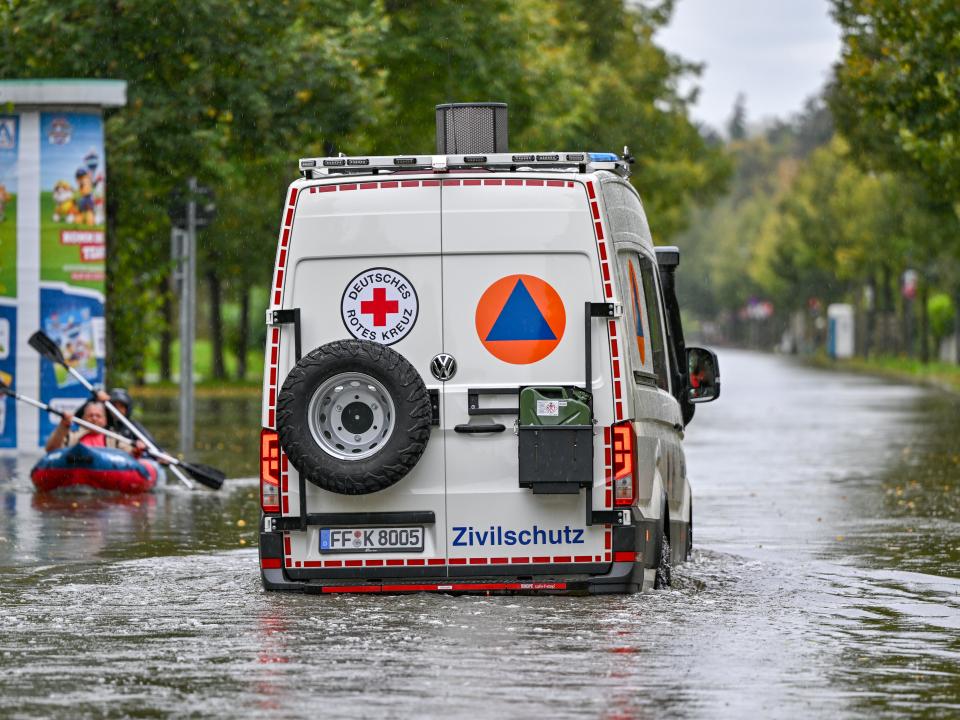Original Article by Chris Walker , Truthout.
“The influence of climate change has [temperatures] up by several degrees,” the study’s lead author said.
Human-caused climate change was responsible for around 1,500 deaths during this year’s atypical heat wave across Europe, a newly published rapid study of mortality data suggests.
The study, conducted by scientists at Imperial College of London and the London School of Hygiene and Tropical Medicine, examined 2,300 heat-related deaths across 12 European cities during the heat wave from June 23 to July 2. About two-thirds of those deaths — approximately 1,500 — were directly attributable to additional warming caused by the climate crisis, scientists said.
Those deaths only happened “because of climate change,” said study co-author Friederike Otto, a climate scientist at Imperial College. “They would not have died if it would not have been for our burning of oil, coal and gas in the last century.”
Temperatures across those 12 cities were 2 to 4 degrees Celsius above what would have naturally occurred if not for human-caused climate change, the scientists discovered.
Certain groups of people, particularly the elderly, were more affected by the rise in heat levels than others — indeed, 1,100 of those 1,500 deaths involved people who were 75 years of age or older.
Related Story
Activists project flames and commentary on the side of the Trump International Hotel in protest of President Donald Trump's response to science and climate change in the face of devastating wildfires burning throughout the United States on October 21, 2020, in Washington, D.C.
|
The days of loudly debating the science have mostly given way to an effort to withhold the raw information itself.
“The influence of climate change has [temperatures] up by several degrees and what that does is it brings certain groups of people more into dangerous territory. … For some people it’s still warm fine weather but for now a huge sector of the population it’s more dangerous,” said lead author of the study Ben Clarke of Imperial College.
The climate crisis also likely contributed to higher rates of wildfires seen across Europe. More than 200,000 hectares of land have burned across European Union member states since the start of the year, more than twice the average that has burned annually from 2006 to 2024. Around 1,118 wildfires have been detected across the EU, too — a 56 percent increase from last year.
While wildfires can be natural phenomena, scientists around the globe largely agree that the drying conditions leading to an increase in wildfires are caused by the climate crisis.
“The evidence connecting the climate crisis and extreme wildfires is clear. Increased global temperatures and reduced moisture lead to drier conditions and extended fire seasons,” an article from The Nature Conservancy published earlier this year explains. “Prolonged heatwaves can take what was once a natural event in the fire-cycle process and supercharge it into a maelstrom that devastates entire communities. And, crucially, worsening wildfires mean larger amounts of stored carbon are released into the atmosphere, further worsening climate change.”
With Trump’s fascist agenda driving the narrative, it’s the duty of independent media to disrupt corporate propaganda.
Yet, at such a pivotal moment, donations to Truthout have been declining. Why? Blatant political censorship from Big Tech.
As we face mounting repression, Truthout appeals for your support. Please donate during our fundraiser — we have 10 days left to raise $50,000.
This article is licensed under Creative Commons (CC BY-NC-ND 4.0), and you are free to share and republish under the terms of the license.




